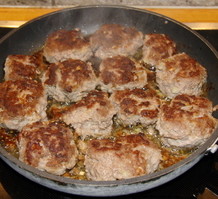Overeating Linked to Cancer

|
Since time memorial, fasting has been advocated as a means of cleansing – both physically as well as spiritually.
Even today, many “alternative” and natural cancer treatment protocols encourage some form of fasting for the purpose of cleansing and detoxification, as well as for “starving” cancer cells. With obesity a major risk factor for cancer, it is certainly of little surprise that overeating could fuel the growth of tumors.
New Research: Overeating Could Feed Cancer Tumors
by Sherry Baker
A host of religious and spiritual traditions, as well as many natural health advocates, have long advocated periods of fasting. And in recent decades, scientists have found that calorie restriction appears to increase life span and may slow down aging. Now new research just published in the online issue of the journal Nature suggests restricting calories could help fight some cancers.
Scientists at the Whitehead Institute in Cambridge, Massachusetts, have pinpointed a cellular pathway that could explain why some cancerous tumors respond to dietary restriction. By studying human prostate, breast, brain, and colon cancer cell lines in mice, the researchers discovered that when this pathway (identified as PI3K) is permanently “turned on” through a mutation, cancer tumors grow and spread no matter how much food is consumed. But when the PI3K pathway operates normally, a 60 percent restriction of dietary calories results in far smaller, weaker tumors.
In a statement to media, the researchers noted the link between food consumption and cancer growth has long been known. For example, in the early 20th Century, scientists found there was a correlation between a restricted diet and a decrease in some tumors’ size and incidence.
“Our findings indicate that each tumor cell bears a signature that determines whether or not that cell will be affected by dietary restriction,” Nada Kalaany, first author of the paper and a postdoctoral researcher in the lab of Whitehead scientist David Sabatini, said in the press statement. “We think that mutations in the PI3K pathway are a major determinant of the sensitivity of tumors to dietary restriction.”
Dr. Sabatini added that the results of Dr. Kalaany’s research could lead to cancer treatments tailored specifically to the characteristics of an individual person’s cancer tumor cells. He also pointed out in a media statement that the relationship between too much food and an increase in tumors was intriguing. “We already know that the United States has an epidemic of obesity and that obesity is probably the biggest contributor to cancer in the U.S., even more so than smoking. Does this research have anything to do with that correlation between obesity and cancer, that if we make animals really obese, that this pathway is also involved in determining their sensitivity to cancer? Answering that question is the next step,” he stated.
An earlier study by Swedish researchers published in the Journal of the American Medical Association found that caloric restriction in early life greatly reduced the risk of invasive breast cancer in women. In addition to possibly helping fight cancer, calorie restriction was shown in recent research by the Salk Institute to improve the memory of elderly adults.
For more information:
http://www.wi.mit.edu/news/archives/2009/ds_0311.html
http://jama.ama-assn.org/cgi/content/full/291/10/1226
http://www.pnas.org/content/early/2009/01/26/0808587106
Source: NaturalNews.com



















0 Comments
Trackbacks/Pingbacks